Noble Governance : the Governance of Governance
Jouini Mohamed Béchir
2024

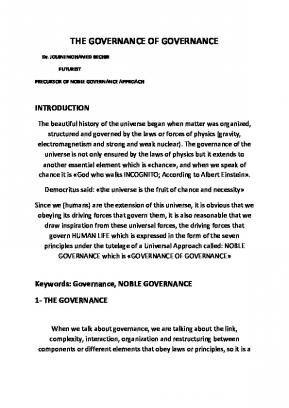
| Year of publication: | 2024 |
|---|---|
| Authors: | Jouini Mohamed Béchir |
| Categories: | Action Roadmapping, Anticipatory Action Learning, Backcasting, Brainstorming, Causal Layered Analysis, Chaos/Complexity Theory, Citizens Panels, Conferences, Decision Modelling, Design Thinking, Discourse Analysis, Critical Issues Analysis, Environmental Scanning, Essays/Scenario Writing, Expert Panels, Ecosystem Modelling, Focus Groups, Future-oriented MLP, Futures Wheel, Genius Forecasting, Horizon Scanning, Interviews, Literature Review, Logic Charts, Morphological Analysis, POP Mapping, Relevance Trees, Role play/Acting, Scenarios, Science Fictioning, Simulation Gaming, Surveys, SWOT Analysis, TRIZ Inventive Problem Solving, Weak Signals Analysis, Wild Cards Analysis, Workshops, World Café, Benchmarking, Bibliometrics, Forecasting, Impact Assessment, Indicators, Modelling, Quantitative scenarios, Trend Extrapolation, Actors Indifference Analysis, Cross-Impact Analysis, Delphi Surveys, SMIC Scenarios, Stakeholder Analysis/MACTOR |
Its the Theory of ALL
| Tags: | Universal Foresight |
|---|---|
| Date: | 21.06.2024 |
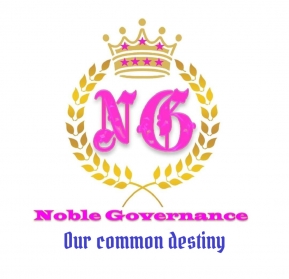
| Year of publication: | 2024 |
|---|---|
| Authors: | Jouini Mohamed Béchir |
| Categories: | Action Roadmapping, Anticipatory Action Learning, Backcasting, Brainstorming, Causal Layered Analysis, Chaos/Complexity Theory, Citizens Panels, Conferences, Decision Modelling, Design Thinking, Discourse Analysis, Critical Issues Analysis, Environmental Scanning, Essays/Scenario Writing, Expert Panels, Ecosystem Modelling, Focus Groups, Force-Field Analysis, Future-oriented MLP, Futures Wheel, Genius Forecasting, Heuristic Thinking, Horizon Scanning, Interviews, Literature Review, Logic Charts, Morphological Analysis, Pathways/Transitions Analysis, Personal Futures, POP Mapping, Relevance Trees, Robust Advice Framing, Role play/Acting, Scenarios, Science Fictioning, Simulation Gaming, Surveys, SWOT Analysis, TEEPSES / PESTLE / STEEP, TRIZ Inventive Problem Solving, Visioning / Vision building, Weak Signals Analysis, Wild Cards Analysis, Workshops, World Café, Benchmarking, Bibliometrics, Forecasting, Impact Assessment, Indicators, Life Cycle Analysis, Modelling, Patent Analysis, Quantitative scenarios, System Dynamics Modelling, Trend Extrapolation, Time Series Analysis, Actors Indifference Analysis, Cross-Impact Analysis, Delphi Surveys, Field Anomaly Relaxation, Key/Critical technologies, Multi-Criteria Analysis, Polling/Voting |
Its a Theory of ALL

| Year of publication: | 2023 |
|---|---|
| Authors: | JOUINI MOHAMED BECHIR |
| Categories: | Action Roadmapping, Anticipatory Action Learning, Backcasting, Brainstorming, Causal Layered Analysis, Chaos/Complexity Theory, Citizens Panels, Conferences, Decision Modelling, Design Thinking, Discourse Analysis, Essays/Scenario Writing, Expert Panels, Critical Issues Analysis, Environmental Scanning, Ecosystem Modelling, Focus Groups, Future-oriented MLP, Futures Wheel, Genius Forecasting, Heuristic Thinking, Horizon Scanning, Literature Review, Logic Charts, Morphological Analysis, Personal Futures, POP Mapping, Role play/Acting, Scenarios, Science Fictioning, Surveys, SWOT Analysis, TEEPSES / PESTLE / STEEP, Visioning / Vision building, Wild Cards Analysis, Workshops |
This method is a trajectory of universal thought, an approach based on the following seven combined, inseparable and complexed principles of Universality, Trajectory, System, Knowledge, Freedom, Change, and Dimension. These are necessary knowledge of multi- and transdisciplinary and multi-referential origin, of multidimensional extension (temporal and spatial, unitary and holistic, objective and subjective, determinism and chance, etc.). This approach is endowed with a literary, philosophical and scientific operating mechanism to achieve NOBLE universal ends.
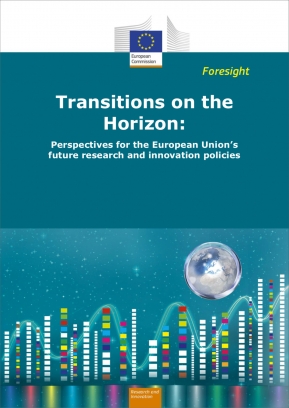
| Year of publication: | 2018 |
|---|---|
| Authors: | Matthias Weber, Liviu Andreescu, Kerstin Cuhls, Bianca Dragomir, Radu Gheorghiu, Susanne Giesecke, Andrea Ricci, Aaron Rosa, Petra Schaper-Rinkel, Carlo Sessa |
| Permalink to UFO case: | Click here » |
| Categories: | Brainstorming, Conferences, Expert Panels, Scenarios, Workshops, Delphi Surveys |
The BOHEMIA project (described in Chapter 1) has piloted a novel methodology which was designed specifically to support the preparation of the next European Commission Framework Programme for Research and Innovation. Chapter 2 outlines the approach and the methods used, in order to ensure transparency about the process of generating insight and allow the assessment of their validity. Chapter 3 briefly outlines four transitions that the EU Framework Programme needs to support. The transitions represent clusters of UN Sustainable Development Goals (SDGs) that respond to sets of challenges posed by the superposition of global megatrends. Inspired by the BOHEMIA scenarios report3, the transitions outline areas where major transformative changes – at global, European, national, and sub-national levels – are needed and/or are likely to arise in the next 20+ years. Chapter 4 provides the core analytical findings of the project. It presents and discusses briefly the 19 targeted scenarios that resulted from the analysis of the BOHEMIA Delphi survey. The full targeted scenarios were used in a public consultation that enquired about their implications for EU R&I policy. Chapter 4 provides the broad analysis of the consultation, while the complete scenarios with their implications, as resulting from the public consultation, are presented in separate documents. The final section (Chapter 5) brings together the recommendations from the whole project for future EU R&I policy, including the list of future directions for EU R&I policy that were most supported in the public consultation.
| Tags: | transitions, European Union, research, innovation, policy |
|---|---|
| Date: | 16.06.2020 |
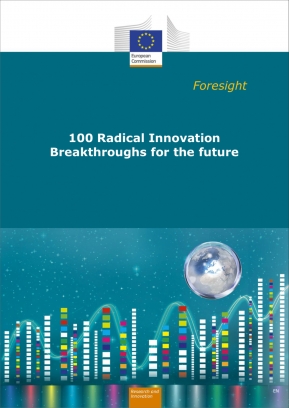
| Year of publication: | 2019 |
|---|---|
| Authors: | Philine Warnke, Kerstin Cuhls, Ulrich Schmoch, Lea Daniel, Liviu Andreescu, Bianca Dragomir, Radu Gheorghiu, Catalina Baboschi, Marjukka Parkkinen, Osmo Kuusi |
| Permalink to UFO case: | Click here » |
| Categories: | Conferences, Expert Panels, Focus Groups, Interviews, Literature Review, Weak Signals Analysis, Workshops, Indicators |
This report provides insights on 100 emerging developments that may exert a strong impact on global value creation and offer important solutions to societal needs. We identified this set of emerging developments through a carefully designed procedure that combined machine learning algorithms and human evaluation. After successive waves of selection and refinement, the resulting 100 emerging topics were subjected to several assessment procedures, including expert consultation and analysis of related patents and publications. Having analysed the potential importance of each of these innovations for Europe, their current maturity and the relative strength of Europe in related R&D, we can make some general policy recommendations that follow. However, it is important to note that our recommendations are based on the extremes of the distributions, and thus not all RIBs are named under the recommendations. Yet, the totality of the set of Radical Innovation Breakthrough (RIBs) and Radical Societal Breakthrough (RSBs) descriptions and their recent progress directions constitute an important collection of intelligence material that can inform strategic planning in research and innovation policy, industry and enterprise policy, and local development policy.
| Tags: | radical innovations, breakthrough, social innovation, technological innovation |
|---|---|
| Date: | 16.06.2020 |

| Year of publication: | 2020 |
|---|---|
| Authors: | Rafael Popper, Nina Rilla, Klaus Niemelä, Juha Oksanen, Matthias Deschryvere, Matti Virkkunen, Torsti Loikkanen |
| Permalink to UFO case: | Click here » |
| Categories: | Workshops, Visioning / Vision building, Value Chain/Network Analysis, Surveys, Stakeholder Analysis/MACTOR, POP Mapping, Literature Review, Interviews, Horizon Scanning, Expert Panels, Environmental Scanning, Critical Issues Analysis, Conferences, Brainstorming, Big Data Analytics, Benchmarking, Action Roadmapping |
This VTT Technology report on 'The Future of Forest-based Bioeconomy Areas: Strategic openings in Uruguay and the World by 2050' is the result of a multistakeholder and multi-disciplinary foresight exercise commissioned by the Government of Uruguay in 2018 and completed in 2019. The overall goal of the project was to contribute to Uruguay's National Development Strategy 2050 through the following specific objectives: (1) To identify key global forest-based bioeconomy areas by 2050; (2) To identify needs and gaps in the prioritised FBA in Uruguay; (3) To develop a shared vision for the forest-based bioeconomy in Uruguay by 2050; and (4) To develop a strategic Action Roadmap to achieve the shared vision for the forest-based bioeconomy in Uruguay by 2050. The most important outcomes of the project include: a shared vision for key foresight-based bioeconomy areas (FBAs), as well as five consolidated Action Roadmaps with 511 concrete short-medium-to-long-term actions related to Forest management (FBA1), Mechanical wood processing (FBA2), Fibre-based biomaterial processing (FBA3), Biorefining (FBA4), and Bioenergy (FBA5). In addition, the report provides more detailed recommendations addressing a wide range of research, education, innovation and institutional needs related to the Top 3 Opportunity Pathways (OPs) of the five FBAs. The methodology of the project involved systematic critical issues analysis (drivers, barriers, threats and opportunities), a multi-stakeholder Delphi-like survey, global value network and business news analysis, visioning workshops and action roadmapping. This report is valuable for government, business, research and civil society actors interested in the state-of-the-art and the future of key forest-based bioeconomy areas in the world. Foresight researchers and practitioners will also find interesting methodological approaches, such as the consolidated action roadmaps. Finally, taking worldview perspective, while the project provided an opportunity for foresight knowledge transfer from Europe to Latin America, both the findings and methodology are equally relevant for other world regions and countries concerned with the future of the forest-based bioeconomy. Permalink of this case in the UF Observatory: https://www.universalforesight.com/ufo/all-cases/11111
| Tags: | foresight, bioeconomy, forest, mechanical wood processing, fibre-based biomaterial processing, biorefining, bioenergy |
|---|---|
| Date: | 01.02.2021 |
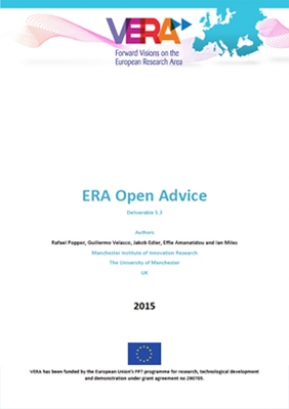
| Year of publication: | 2015 |
|---|---|
| Authors: | Rafael Popper, Guillermo Velasco, Jakob Edler, Effie Amanatidou, Ian Miles |
| Permalink to UFO case: | Click here » |
| Categories: | Workshops, Visioning / Vision building, Scenarios, Literature Review, Interviews, Expert Panels, Conferences, Brainstorming |
The ERA Open Advice report and related Policy Brief come at a time when we seek a renewed momentum to support Europe’s way out of the crisis and tackle grand challenges through an improved European Research Area (ERA). They offer a great opportunity to step back and raise a critical wake-up call on the very purpose, shape and ambition of ERA. Here we have captured the essence of ERA stakeholders’ views on rethinking ERA priorities and broadening the agenda. Three key messages and a considerable number of policy issues have emerged: First, the existing ERA priorities are of great importance and should be further pursued. Second, however, there is a concern that the definition of those priorities is too narrow and not flexible enough and thus must be re-visited. Third, and even more important, the debate has led to the identification of new ERA dimensions that have not been captured in the ERA discourse so far, but which deserve more policy attention and integration into the evolving dimensions of the European R&I landscape.
| Tags: | careers, ERA, European Research Area, evaluation, global, governance, innovation, knowledge, Manchester Institute of Innovation Research, MIOIR, research policy, researcher, scenarios, science, society, transfer, University of Manchester, VERA |
|---|---|
| Date: | 06.05.2020 |
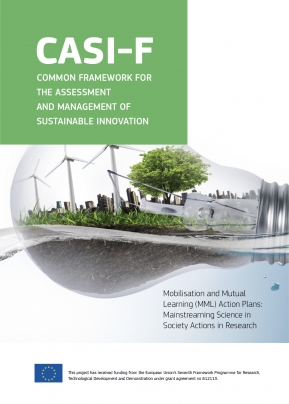
| Year of publication: | 2017 |
|---|---|
| Authors: | Rafael Popper, Guillermo Velasco, Monika Popper |
| Permalink to UFO case: | Click here » |
| Categories: | Workshops, Visioning / Vision building, SWOT Analysis, Stakeholder Analysis/MACTOR, Literature Review, Interviews, Horizon Scanning, Critical Issues Analysis, Conferences, Citizens Panels, Action Roadmapping |
This report is the final version of CASI-F: A Common Framework for Assessment and Management of Sustainable Innovation. The framework was informed by a number of preceding tasks and includes inputs from seminars and workshops with a wide range of societal stakeholders, as well as recommendations and feedback gathered from innovators during the mapping of sustainable innovation (SI) initiatives and piloting of CASI-F implementation. The testimonies of stakeholders are therefore presented within the report, in order to further validate the versatility, usefulness and effectiveness of CASI-F, as perceived by its users. The report presents the core of the CASI-F methodology, consisting of five mutually reinforcing sets of protocols and tools (or steps) that constitute the framework, namely: (Step 1) sustainability relevance and scanning; (Step 2) multi-criteria analysis and assessment; (Step 3) critical issue analysis and assessment; (Step 4) multi-level advice management; and (Step 5) action roadmaps management. Although the report marks the final contractual stop of the CASI-F journey, it also highlights the way forward and the potential for a new sustainability assessment and management framework (CASI-F) to thrive beyond the life of the project.
| Tags: | sustainable innovation, assessment, management, public participation, mutual learning, foresight, societal challenges |
|---|---|
| Date: | 07.05.2020 |
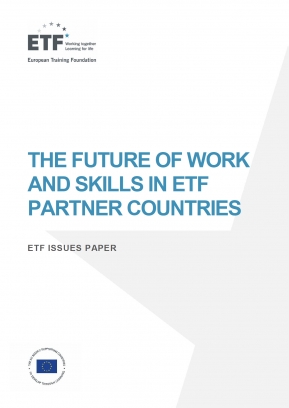
| Year of publication: | 2019 |
|---|---|
| Authors: | Rafael Popper, Torsti Loikkanen |
| Permalink to UFO case: | Click here » |
| Categories: | Workshops, Trend Extrapolation, Surveys, Literature Review, Indicators, Expert Panels, Conferences, Benchmarking, Action Roadmapping |
This ETF Issues Paper on the Future of Work and Skills is the first attempt to collect and analyse existing information and data on the skills demands of the future in ETF partner countries, and to explore responses for better managing the transition (transformation) towards an inclusive future for the benefit of individuals and societies. Thus, the paper analyses the impact of global developments on skills demands in ETF partner countries in order to support their discussions on the policy reforms required for managing the transition to the future. Rather than making a detailed analysis of each individual country, the paper reviews the general trends across the four regions of the ETF's partner countries: South Eastern Europe and Turkey (SEET), Eastern Partnership (EaP), Southern and Eastern Mediterranean (SEMED) and Central Asia.
| Tags: | Foreign Countries, Job Skills, Economic Factors, Employment, Labor Market, Global Approach, Educational Policy, Lifelong Learning, Information Technology, Automation, Outsourcing, Change, Coping, Public Policy, Vocational Education |
|---|---|
| Date: | 07.05.2020 |
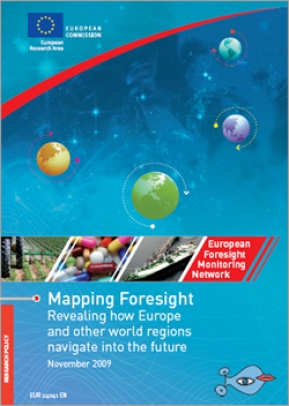
| Year of publication: | 2009 |
|---|---|
| Authors: | Rafael Popper |
| Categories: |
The “Mapping Foresight” report was part of a series of publications produced by the European Foresight Monitoring Network (EFMN, 2004-2008). EFMN was a Europe-wide network inspired and financed by the European Commission within the framework of the Foresight Knowledge Sharing Platform implemented under the Research Framework Programme (FP7). The mapping activity was one of the main activities of the network. Over 2000 initiatives were mapped between 2004 and 2008 in Europe and other world regions, including Latin America, North America, Asia and Oceania. The report is the result of the first large international effort aimed at understanding the nature of foresight practices. Foresight has become more than just a tool to support policy or strategy development in Science, Technology, and Innovation (STI). Published by: European Commission Publication date: November 2009
| Tags: | mapping, foresight, methods, practice |
|---|---|
| Date: | 29.04.2020 |
Jouini Mohamed Béchir
2024
Jouini Mohamed Béchir
2024
JOUINI MOHAMED BECHIR
2023
Matthias Weber, Liviu Andreescu, Kerstin Cuhls, Bianca...
2018
Philine Warnke, Kerstin Cuhls, Ulrich Schmoch, Lea...
2019
Rafael Popper, Nina Rilla, Klaus Niemelä, Juha Oksanen,...
2020
Rafael Popper, Guillermo Velasco, Jakob Edler, Effie...
2015
Rafael Popper, Guillermo Velasco, Monika Popper
2017
Rafael Popper, Torsti Loikkanen
2019
Rafael Popper
2009
© 2025 Universal Foresight










